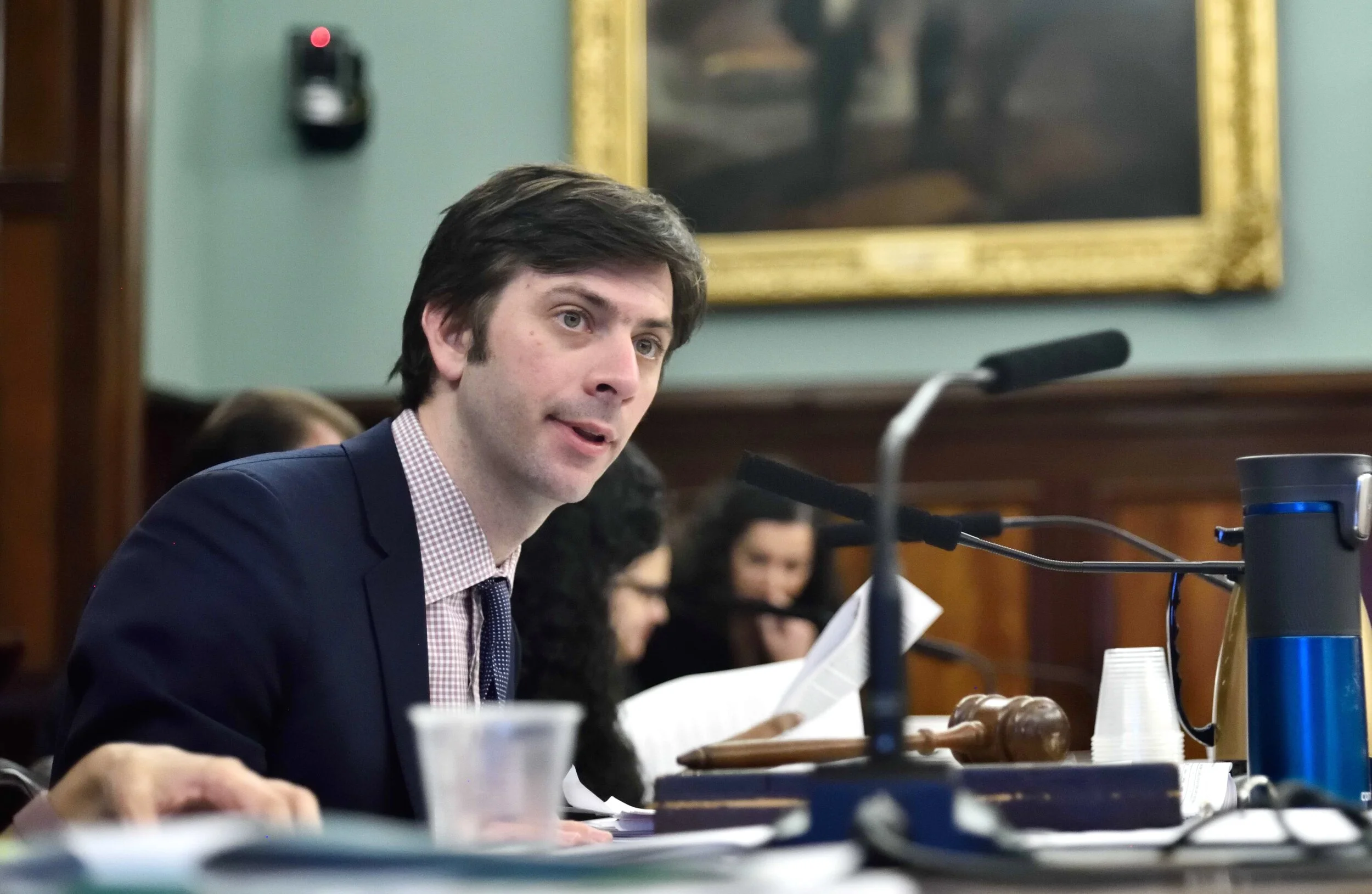Homeless New Yorkers, advocates renew push to increase voucher value
/Councilmember Stephen Levin has introduced legislation to raise voucher values. The bill has 35 sponsors but has not been brought to a vote. Photo by John McCarten/City Council
By David Brand
In theory, city-backed housing vouchers are supposed to help homeless families move out of shelters and into permanent housing.
In practice, they’re worse than worthless, say homeless New Yorkers and advocates urging the City Council to vote on a measure that increases the value of CityFHEPS subsidies — short for Fighting Homelessness and Eviction Prevention Supplement.
“What’s worse than giving people no hope is giving them false hope,” said Christine Quinn, the head of nonprofit shelter provider Win, during a virtual rally Tuesday morning. “And that’s what a CityFHEPS voucher is: false hope.”
The voucher values trail actual market rates in every single neighborhood in New York City, said Quinn, a former city council speaker. That discourages landlords from accepting the subsidies when they can make more from other renters, she said. Landlords and brokers also frequently decline to rent to voucher-holders, even though source-of-income discrimination is illegal.
Quinn and other advocates want to peg the city voucher to the value of a federal Section 8 subsidy, currently $2,217 for a two-bedroom apartment. The FHEPS vouchers are capped at $1,557 per month for a two-bedroom.
Citywide, two bedroom apartments average $3,300 per month.
The higher rate would allow voucher recipients to rent the average apartment in 24 neighborhoods and the Rockaway Peninsula. The communities include Kew Gardens Hills, Maspeth, Glendale, Middle Village and Whitestone, according to data compiled by Win.
Shiniqua Bryant, a public school teacher’s assistant, said she and her family have been stuck in a shelter for more than a year, unable to find a landlord who will accept their voucher.
“I’ve been calling people and going nowhere,” Bryant said.
It’s a common experience, said Councilmember Stephen Levin, chair of the social services committee. Data he received from the city shows that just 4.5 percent of families with CityFHEPS vouchers find an apartment using the subsidy, he said.
“It’s shocking when I tried to find an apartment on Craigslist, I could find maybe an apartment or two in entire boroughs for the amount paid by CityFHEPS,” he said. “It was outrageous.”
Levin has introduced the legislation that would raise the voucher value to reflect market rates. The bill has 35 co-sponsors but has not been brought to a vote.
Opponents of the measure say they are skeptical of the upfront costs during a financial crisis. They also point to another subsidy program known as Advantage that the city and state allowed to expire, plunging families back into homelessness.
But supporters say the budget consciousness is a major reason why the city should raise the values and move people out of homelessness.
In 2019, shelter and services for a family cost the city $158 per night, or more than $4,700 per month, according to the Department of Homeless Services. The average cost of rooms and services at hotels converted to shelter use was $237 per night, or more than $7100 per month, DHS data shows.
The value increase also has major support among prospective councilmembers. Six candidates running in a special election to represent Council District 24, including Election Day leader James Gennaro, said they support increasing the value of the voucher during a debate co-hosted by the Eagle.
At least one major landlord group has also backed the voucher hike.
Community Housing Improvement Program Executive Director Jay Martin told the Eagle last year that small property owners are seeking steady rent payments amid the current economic uncertainty. HIP represents thousands of small landlords throughout New York City.
“It’s a win-win,” Martin said in October 2020. “Vouchers could really be a lifeline to people struggling financially and provide, frankly, the means for a landlord to place someone in an apartment that they otherwise can’t afford.”




